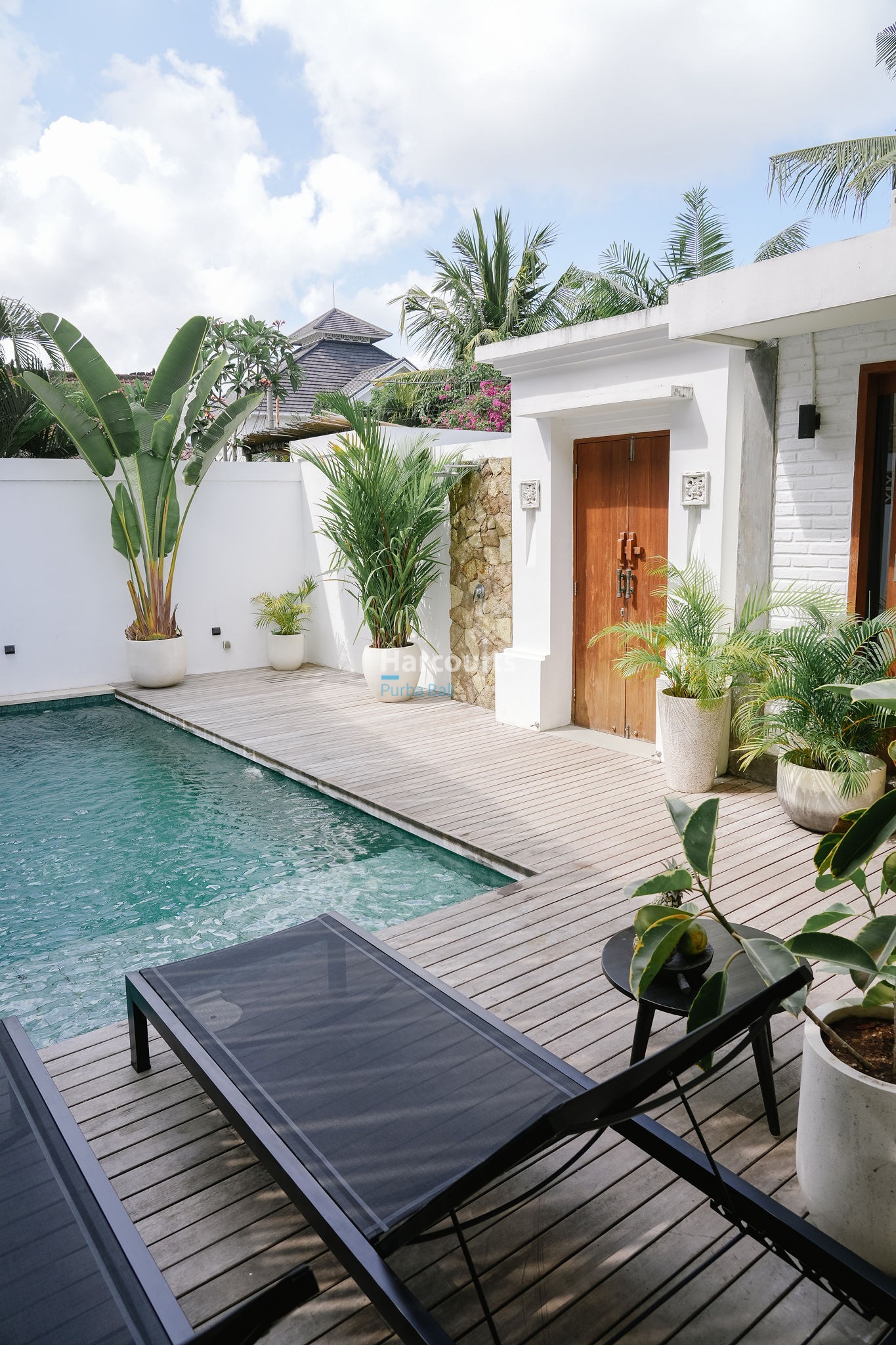Many consider property investment in Bali as a dream, and with the right guidance, it can be a reality. Bali’s landscape, coupled with its growing economy, made it a hotspot for investments from all over the globe. However, knowing how to buy property in Bali as a foreigner could be complicated. Here we give you a comprehensive step-by-step guide to buying property in Bali. We will answer your questions about legal requirements, funding, and ownership structures to make your process smooth and informed.
1. Understand the Bali Property Market
Bali’s property market is booming, fueled by the island’s thriving tourism industry and increasing demand for vacation and rental homes. Property prices differ by area, with popular regions like Seminyak and Ubud attracting higher prices than more remote locations. Identifying your goals, whether they’re a vacation home, rental income, or a long-term residence, will help narrow down your options. Research property to buy in Bali to get a sense of current options and prices.
2. Can Foreigners Buy Property in Bali?
One of the most important questions for international buyers is, “Can foreigners buy property in Bali?” Foreigners cannot directly own freehold property in Indonesia; however, there are secure alternatives:
- Leasehold Ownership: Foreigners can lease land or property for an initial term of up to 30 years, with options to extend in increments, often reaching up to 70 or 80 years. This arrangement is widely used for rental properties and residential investments.
- Hak Pakai (Right to Use): This title allows foreigners to obtain the right to use a property for up to 80 years, generally structured as an initial 30-year term with options to extend. Hak Pakai is typically for personal residence and cannot be directly transferred to another foreigner without re-authorization.
- Hak Guna Bangunan (Right to Build): This title permits foreigners to build on land for commercial or residential purposes, typically for an initial term of up to 30 years, with options to renew for an additional 20 and 30 years. Hak Guna Bangunan is especially useful for those interested in developing property for business ventures in Bali.
An experienced Bali property agency can help you navigate these regulations and find the most suitable ownership option.
3. Choose the Right Type of Property for Your Investment
Bali offers a variety of property types that cater to different investment goals:
- Villas: Popular in areas like Canggu and Seminyak, villas are perfect for vacation rentals and yield high returns.
- Land: Purchasing land allows for custom-built villas but requires understanding local building regulations.
- Condos and Apartments: These often come at a lower cost and provide easier maintenance, especially if you plan to rent.
You can explore more about the investment potential of villas and other types of Bali property investment through Harcourts Purba Bali’s listings.
4. Set a Budget and Assess Financing Options
Foreign investors typically fund Bali properties through cash purchases, as financing options for non-residents are limited in Indonesia. Be sure to account for additional costs like:
- Legal and Notary Fees: These include property transfer fees and are usually 1-2% of the property price.
- Taxes: Expect a land transfer tax of 5%, and depending on the property type, you may have additional annual property taxes.
5. Hire an Experienced Local Lawyer
The legal side of purchasing property in Bali is essential to ensure your investment is safe and in accordance with the laws of Indonesia. A local attorney can help in reviewing ownership certificates, verify the history of the property, and help in understanding contract terms. He will also confirm the seller’s right to sell and guide you through the completion of the Sales and Purchase Agreement, or SPA.
6. Conduct a Property Inspection
Always inspect before signing a final deal. Villas to be resold in Bali may require some upgrading or repair. A local agent can accompany you for all your inspections and may avoid any surprise expenses after the purchase. Reliable Bali property agencies will assist you by connecting you with experienced inspectors and contractors in this process.
7. Make an Offer and Negotiate
Once you see the right place, negotiations come into play. You’ll be able to get more room to talk in a Bali market if you’re using local agents showing you comparative price points. A professional agency such as Harcourts Purba Bali will ease the way for you during this negotiation process and let you present yourself on an even better footing with the potential price range and terms in your dealings.
8. Prepare and Verify Your Documentation
The buying process in Indonesia involves specific documentation:
- Sales and Purchase Agreement (SPA): This outlines the agreed-upon terms between you and the seller.
- IMB (Building Permit): Essential if you plan to build or modify the property.
- Certificates of Ownership: Titles like Hak Pakai, Hak Guna Bangunan or leasehold agreements must be verified and appropriately recorded.
A lawyer and an experienced property agency will ensure all documents are in order, reducing potential issues later.
9. Finalize the Purchase and Complete Registration
Once the SPA is signed and payment for the property has been fulfilled, the last stage consists of transferring ownership in any legal manner. The Local Land Office is the government agency that deals with local land registration. Once it gets registered, you have held rights to the property as its owner. You have agencies like Harcourts Purba Bali assist with the registration process. All the procedures are dealt with by the agency, so legally your ownership of your property is valid.
10. Plan for Ongoing Property Management
After purchasing, the most important thing is to maintain the property. Whether you use the property as a residence or rent it out, the local property management team can take care of everything, from maintenance to tenant management. This is very valuable if you are not based in Indonesia, allowing you to enjoy returns on your investment hassle-free.
Why Choose Harcourts Purba Bali for Your Property Investment?
With years of experience within the property market in Bali, Harcourts Purba Bali provides full support from the very first home buyer and also to long-term investors with local know-how, a full listing list, and total help at all stages of purchase.
Whether you are buying an exclusive villa, investing in a rental property, or seeking to have your dream home designed from scratch, our staff will help you find information as well as personalized guidance according to your needs. Are you ready to start your journey toward ownership in Bali? Invest in Bali property today by browsing through our listings for sale or contact our company to get advice tailored specifically for your needs.
Frequently Asked Questions (FAQs)
1. Can foreigners buy property in Bali?
Foreigners cannot own freehold property but can purchase through long-term leasehold or Hak Pakai options. Hak Guna Bangunan provides another option for foreigners, if they have an investment company (better known as PT PMA) set up in Indonesia.
2. What types of property are available in Bali?
You’ll find villas, apartments, and land plots, each suiting different investment goals.
3. Is property in Bali a good investment?
Yes, high rental yields and a growing tourism industry make Bali property a promising investment.
4. How long does the property buying process take?
The process generally takes several weeks, depending on property type and legal steps.
5. Are additional costs involved in purchasing Bali property?
Expect additional expenses for legal fees, notary costs, and property taxes.
6. Do I need a lawyer to buy property in Bali?
Yes, hiring a local lawyer ensures compliance with regulations and protects your investment.





